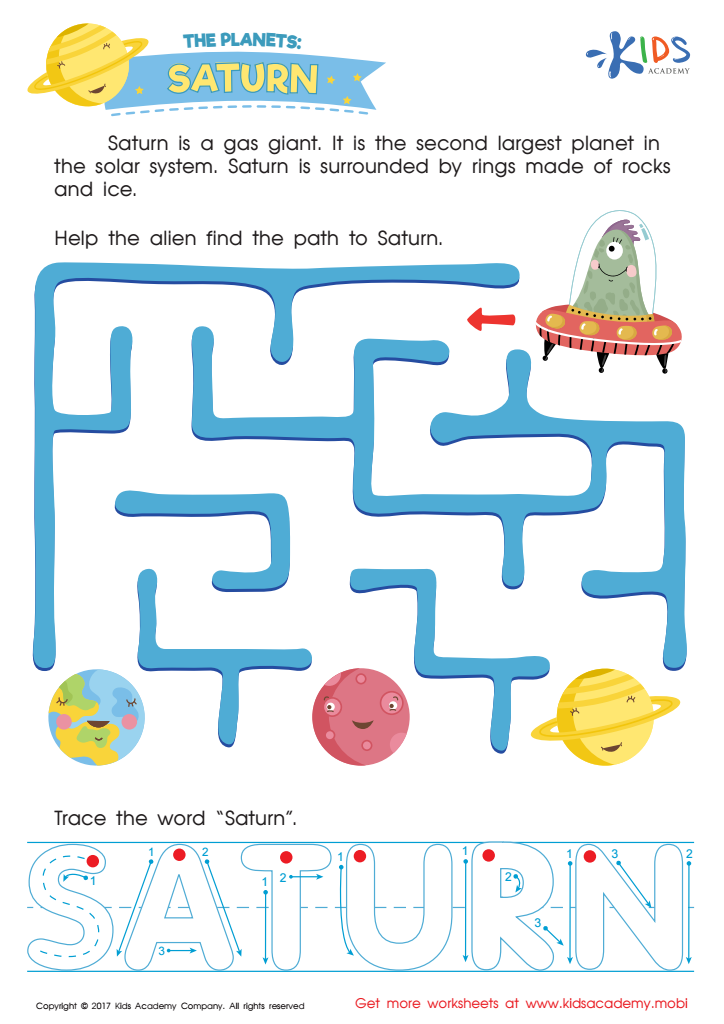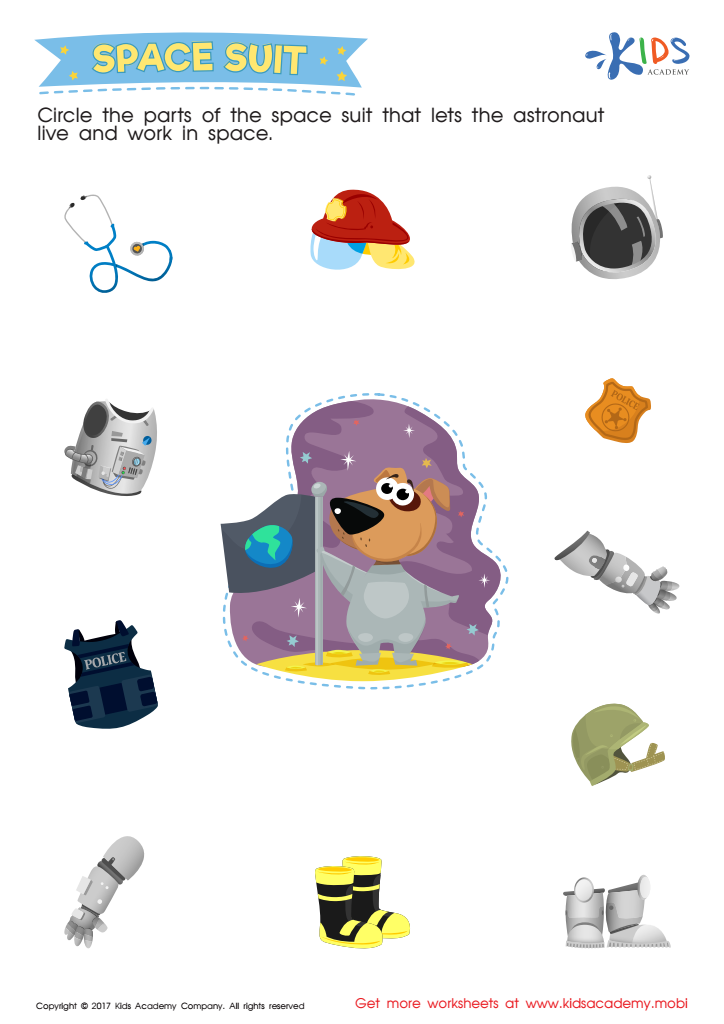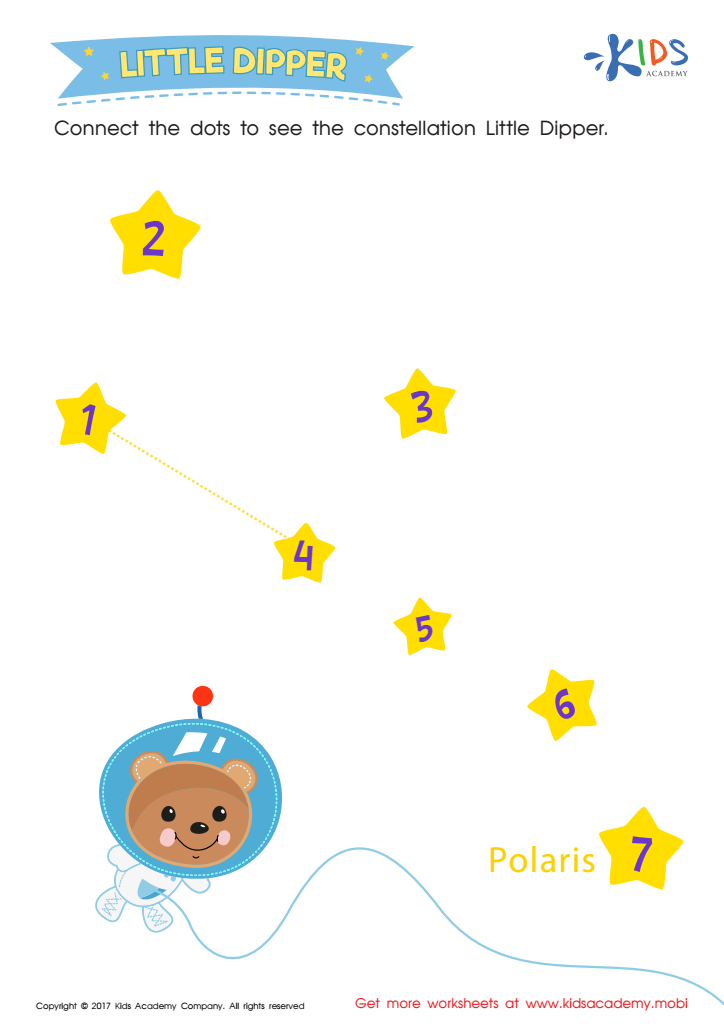Space Worksheets for Ages 6-8
4 filtered results
-
From - To
Welcome to our "Space Worksheets for Ages 6-8" page! Here, young learners can embark on an exciting journey through the universe while developing critical skills in reading, math, and creativity. Our engaging worksheets cover various topics about space, including planets, stars, and galaxies, as well as fun facts and illustrations that spark curiosity. Designed for kids aged 6-8, these printables promote learning through interactive activities such as coloring, puzzles, and simple scientific concepts. Explore the wonders of outer space and foster a love for science with our easy-to-use worksheets. Let's make learning about the cosmos both fun and educational!




The Planets: Saturn Printable
Parents and teachers should care about space, especially for children aged 6-8, because it introduces a world of wonder and curiosity that sparks a child's imagination. At this developmental stage, kids are naturally inclined to ask questions about their surroundings, and space is an exciting topic that encourages exploration. Learning about space helps children understand fundamental concepts in science, such as gravity, the sun’s light, and the planets. This knowledge builds a foundation for critical thinking and problem-solving skills.
Moreover, space exploration often fosters collaboration and teamwork, as projects about space can involve family participation or group activities in the classroom. This collective engagement not only enhances learning but also strengthens relationships among parents, children, and peers.
Additionally, an early interest in space can motivate children to pursue careers in science, technology, engineering, and mathematics (STEM) fields as they grow. By showing enthusiasm for space, parents and educators can encourage lifelong learning and fuel a passion for discovery. Ultimately, instilling a love for space can inspire children to think big, dream wide, and embrace the wonder of the universe, shaping their future motivations and aspirations.
 Assign to My Students
Assign to My Students
















